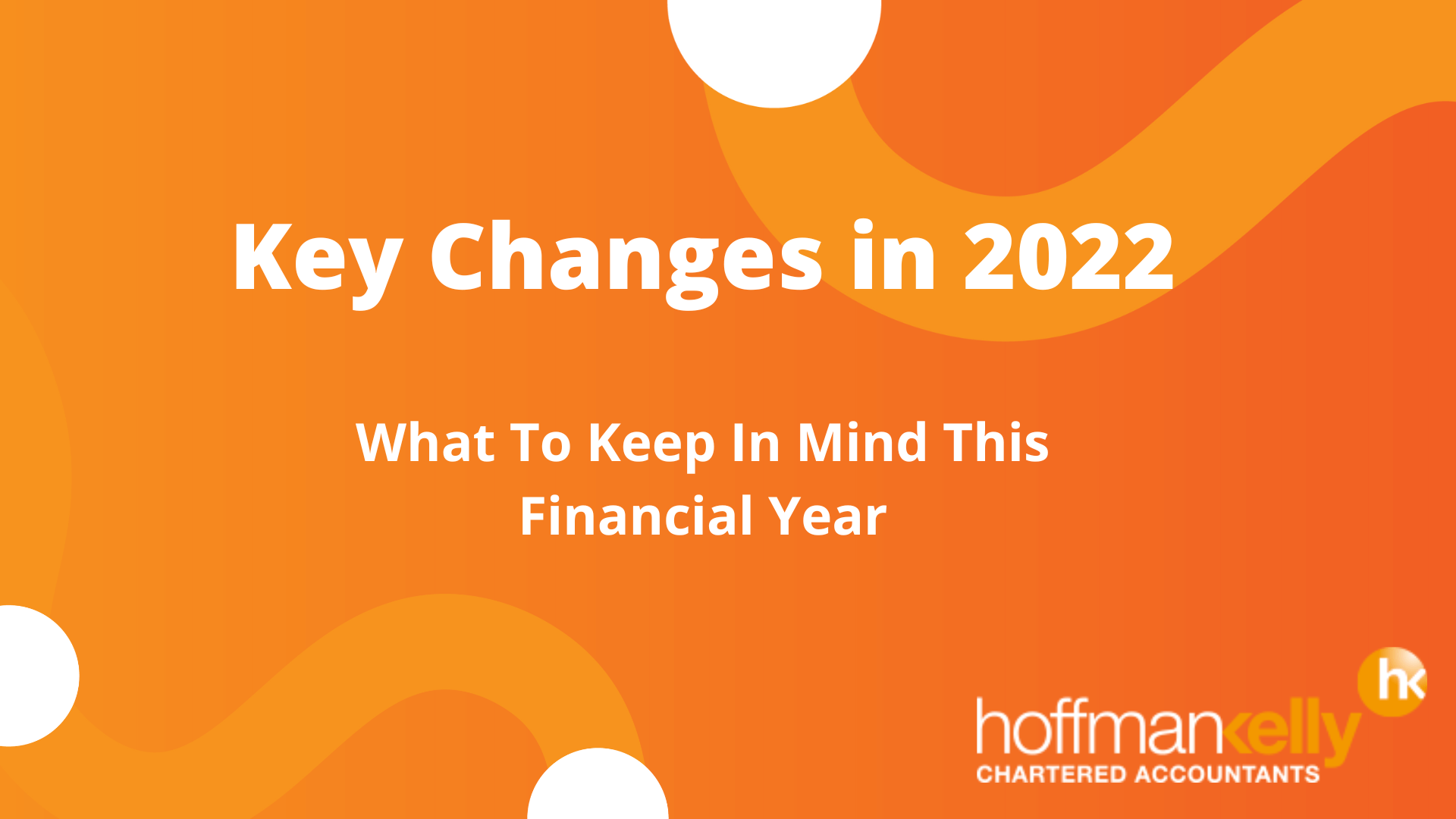As we take on the new financial year, we’re here to recap the new and continuing measures to keep front of mind as we roll into the new year.
Key Changes for Individuals
- COVID-19 Tests – deductions are available for testing kits purchased for work-related purposes. E.g. if you had to take a test to determine whether you could attend work or not.
- COVID-19 Payments – Some payments received under this category will be taxable and some will not:
- COVID-19 Disaster Payments are classified as non-assessable & non-exempt income meaning these are non-taxable payments that do not need to be included in the tax return.
- Pandemic Leave Disaster Payments are however classified as assessable income and will need to be included in the tax return.
- Low and Middle-Income tax offset (LMITO) ends – From 1 July 2022, this tax offset comes to an end, however, the LMITO will be available for eligible taxpayers once they lodge their 2021 – 2022 income tax return.
- Working from Home (WFH) 80 cents per hour shortcut method – This will also be unavailable from 1 July 2022, however, can still be claimed in the 2021 – 2022 income tax return.
Key Changes for Businesses
- Increase to the Superannuation Guarantee percentage from 10% to 10.5% – This takes effect for payments made from 1 July 2022. Depending on the employees’ package will determine if there will be any changes to their take-home pay. Please contact us if you require any assistance reviewing your payroll arrangements.
- Removal of the mandatory $450 monthly income threshold for Superannuation guarantee payments – For employees aged 18 or over there is no longer a requirement to earn the minimum $450 monthly, all wages made will require super guarantee contributions to be made.
- Temporary full expensing of eligible depreciating assets – Eligible business entities with an aggregated turnover of less than 5 billion can continue to opt to fully expense depreciable assets up until 30 June 2023.
- Company loss carry-back tax offset – Eligible entities can choose to carry back the tax equivalent amount of tax losses against tax paid on taxable income in the 2019,2020,2021 & 2022 financial years by claiming a refundable offset in the company’s 2021,2022 or 2023 tax return.
- Unpaid present entitlements (UPEs) to companies – The ATO has finalised their position on when UPEs or amounts held on sub-trust become the provision of financial accommodation.
- From years ending 30 June 2023 and onwards, any UPEs arising that remain unpaid in the following year will need to have a Division 7a arrangement in place otherwise a deemed dividend arises.
- Trust Distributions to families in lower tax brackets (s100a) –
- The ATO has set its sights on distributions of trust income to family members. More care is required when planning to distribute to families with lower income rates.
- There is no blanket approach to tackle this however we have undertaken a review of such arrangements with our clients during the preparation of the 2022 tax planning and had necessary discussions thereon. If you have any such arrangements that you would like reviewed or are considering for the future, please do contact us and we can work through this with you.
Superannuation
- Downsizing contributions into superannuation – This measure allows you to contribute up to $300,000 from the proceeds of the sale of your home into your superannuation fund. Starting 1 July 2022, the eligible age has been reduced from 65 to 60.
- Removal of the work test for voluntary super contributions – Starting 1 July 2022, If you are below the age of 75 you can make and receive contributions including salary sacrificed contributions without having to meet the work test. Please note there is an exception to this where individuals want to claim a personal super contribution deduction.
Measures Awaiting Royal Ascent
- FBT exemption for electric cars – Just recently this bill was passed and is intended to apply from 1 July 2022. The FBT exemption is for zero or low emissions cars which include battery electric vehicles, hydrogen fuel cell vehicles & plug-in hybrids. This will only apply to vehicles with an initial purchase price below the luxury car threshold for fuel-efficient cars as it will also include second-hand vehicles.
- Small businesses with annual turnovers of less than $50 million will have access to claim an additional 20% of expenditure that fall into the following categories:
- Small business skills & training boost – Expenditure incurred on eligible training courses provided to employees from 29 March 2022 up until 30 June 2024.
- Small business technology investment boost – Expenditure relating to digital adoption such as cyber security systems, cloud-based services or portable payment devices from 29 March 2022 up until 30 June 2023. This measure has a cap of $100,000 each financial year.
As these measures are yet to be passed, all eligible bonus expenditures that fall under the above categories within the period 29 March 2022 to 30 June 2022 will be included in 2022 – 23 tax returns. We will provide in more detail how these measures will work once the law has passed.
Get In Touch
Please contact your trusted advisor at Hoffman Kelly to discuss how the above measures apply to your situation.

